- Home
- Tim Sullivan
The Cyclist Page 2
The Cyclist Read online
Page 2
The pathologist looked at him blankly. Cross was slightly surprised that he needed to elaborate any further. 'Our John Doe is a cyclist. Possibly professional.'
She laughed involuntarily, as she was, despite herself, quite impressed. 'Do you actually need me?'
'Yes of course,' he replied, without a hint of irony. ‘I'm not qualified to perform autopsies, and even if I was I wouldn't have the time.'
And with that he left.
Cross was always busy at work. He was obsessed with how he utilised his time there, bearing in mind how limited their resources were. He felt it incumbent on him to be as productive as possible, at all times. He spent the afternoon putting the final touches to a stack of paperwork for a case that was going to court. For many a detective this was a chore – something that had to be done which they took no joy in doing. For Cross, though, it was almost the best part of his work. For a start it was something he could do on his own, with no involvement from anyone else. But it was more than that. It was the fact that this was when you put your case together. When you provided and constructed a narrative from the evidence and your carefully conducted interview. Cross was a master at the "no comment" interview. He could go on for hours asking questions, which the suspect thought he or she was evading cleverly, on the advice of their lawyer, by replying "no comment". Then he would produce a piece of evidence that would stop them in their tracks and require an answer. These "no comments", once placed in the context of the interview overall, often produced a damning picture of the accused, their credibility and their story. He also had an innate sense of how to manage the limited time in these interviews. He could go on for hours, seemingly directionless, and then suddenly deliver his killer blow and wrap it up in minutes. Cross revelled in finding the most mundane, tiny detail which would completely undermine their case. On occasion other detectives asked him for help in the preparation of their cases for court. If he had time he was more than willing to give them a hand. Ottey often felt he was like the school swot, with other pupils going to him for help with their homework.
He also regularly popped into the CCTV department – although he thought that was a misnomer, if ever there was one. It was a spare office with a couple of computer screens on desks, with the lights dimmed. The occupants were sallow-faced and looked like they could do with a bit of fresh air, or sun. But maybe that was just the silver reflection of the screens in front of them. The officer in charge was Catherine. She was a quiet woman in her late thirties with grey streaks in her hair which she did nothing to disguise. She looked more like a blue-stocking academic or librarian than a serving police officer. Perhaps that was why she found herself in this department.
Not for them the CCTV department of TV fiction, with dozens of screens on one side of a vast spaceship-type room with the ability – at the push of a button – to come up with whatever they were looking for in a matter of seconds. It took days of laborious, tedious scanning of the screens just to come up with a fuzzy frame-grab of suspect vehicles. But there was a sense of calm in the room which Cross appreciated. Secretly he'd love to work in this department. But there weren't enough puzzles in CCTV analysis to satisfy him. The repetitive routine appealed to him. It was also a paper-free zone, he'd noticed. Desks were completely free of piles of paper. He hated that in the incident room. Paper everywhere. Piles upon piles. How could people possibly work in an efficient manner like that? How could they think clearly?
They were looking at CCTV footage from the streets leading into the council block. Those in the block had been vandalised years before. As yet, nothing had been found. They also didn't have particularly specific time parameters to work around, which didn't help.
There was a knock at his door. Cross was the only one in the department, other than Carson, to have his own office. It wasn't a privilege so much as a necessity. He couldn't work in an open area. There were too many things that put him on edge. Mackenzie waited till he summoned her. She had learnt that he didn't keep people waiting unnecessarily, or out of some sense of self-importance, but because he needed to finish whatever he was working on, or complete whatever train of thought he was pursuing, without interruption. She walked in after he had signalled her to enter. She waited till he'd finished typing on his computer and looked up. This was her cue.
'I called British Cycling. According to them, all professional cyclists are accounted for in the UK,' she said.
'And how would they know that, exactly?' he asked.
'Well, what they actually said was that none of them have been reported missing,' she replied.
'Which is an entirely different thing, wouldn't you say?'
'I suppose so.'
'Europe.'
'Excuse me?'
'Of course, but...' He stopped himself as he realised she wasn't asking permission to leave. She often said this as a way of asking him to repeat himself or, as in this case, protesting about whatever he'd just said. 'Is there a problem?' he asked.
'Europe?' she repeated.
Ottey then came into the office and immediately interrupted.
'I think I may have found our man. Avon Cycling Club,' she said.
'An amateur?' Cross said, thinking out loud. Obviously a very determined and dedicated one, he thought.
'So it would seem,' she replied.
'So no need to do Europe then?' Mackenzie asked hopefully.
'Why would you say that?' said Cross.
Mackenzie looked over at Ottey and said 'Because...' but Cross quickly interrupted her.
'DS Ottey merely thinks she may have identified our corpse, but until she knows definitively we should exhaust every possible avenue of enquiry.'
'Okay...' she replied.
'What would happen if we all stopped doing what we were doing every time someone thought they had a lead?' he went on, fully believing that he was fulfilling Ottey's instruction that he should be helping and training Mackenzie; not realising that he was, in reality, sounding dismissive and critical.
'We'd get nowhere fast,' volunteered Ottey. Cross sighed, but he couldn't help himself.
'No, DS Ottey, we wouldn't get anywhere at all,' he said, displaying, yet again, his difficulty with the vernacular and immediate recourse to the literal. 'As soon as we've confirmed the deceased as being part of the Avon Cycling Club we'll let you know and task you with something else.'
Ottey and Mackenzie left. Ottey knew that Mackenzie was still being thrown by her partner, despite having worked with him for months.
'Like I keep saying, Alice. Don't worry about him. Just do everything he asks, exactly as he asks and precisely when he asks and you'll be just fine. Probably.'
She left Mackenzie at her desk, wondering whether she could actually cope with this. She understood he was on the spectrum – she actually had a younger autistic brother – but at times it was easy to forget when he came across as a deliberately rude, objectionable, older white man. She had to remind herself it wasn't personal. It wasn't his intention to be difficult or unpleasant; it just came out that way at times.
Chapter 3
The man Ottey had spoken to was the Secretary of the Avon Cycling Club, and so he was their first port of call. He was a chemist working out of Clifton village. This was the most upmarket area of Bristol. It contained one of Cross' favourite pieces of architecture, Royal York Crescent. Over two hundred years old, it was once the longest terrace in Europe. Built over vaulted cellars, it still had the grandeur the architect had desired for it two centuries earlier. Cross could imagine Brunel walking down it approvingly when he was dreaming up the Suspension Bridge nearby. He had once heard someone refer to Clifton as "gentrified" and he had corrected them, saying it had always been well-to-do and in no need of gentrification. They parked up outside. Cross looked out of the car window.
'This is annoying. I had a prescription I could've brought,' he said.
He remembered a chemist in this area from when he was young. He was quite a poorly child, due to his asthma, so he had a
recollection of a fair few chemists or pharmacies in the Bristol area. He hated that word "pharmacy". What was wrong with "chemist"? When had people in England started calling them "pharmacies"? Was it an American thing? Or European? He made a mental note to check. Things like that would irritate him, like a tune you can't get out of your head, till he'd found the answer. He remembered this particular chemist, because back in the 1970s it was still Victorian in essence. It had ornate wooden-framed windows, a magnificent bank of dispensary drawers, but most memorable of all, a collection of giant coloured dispensing jars in the window. Glass, they were the most vibrant colours: red, blue and green. He would stand looking at his distorted reflection in them, moving around so the distortions changed. Like a hall of mirrors in a funfair.
Mr Ajjay Patel was a fit-looking man in his forties with muscular forearms and calves. He was wearing shorts. They had started by asking about the club in general, before they got to talking about the missing cyclist.
'Alex Paphides. He's training for this year's L'Étape,' said Patel.
'L'Étape?' Ottey asked.
'It's a bike race, over one of the actual stages of the Tour de France. Takes place after it's finished, obviously. Difficult stage this year,' said Cross.
'Yes it is,' said the chemist, impressed by Cross' knowledge.
'Megève to Morzine, 146 kilometres, four climbs including the Col de Joux Plane – 11.6 kilometres with a climb of 1,691 metres and an average gradient of 8.5 to 12 percent,' Cross went on.
'Wow, you know your cycling,' said Patel.
'Not particularly,' said Cross.
'So go on,' said Ottey, bringing them back to the matter in hand.
'The six of them were due to go on a training fortnight in Tenerife. Alex texted Matthew to say he was injured.'
'When?' asked Cross.
'That morning, I believe,' said Patel.
'Who is Matthew?' Ottey asked.
'He's the captain of the team.'
'What about Alex's family?'
'He runs a restaurant. With his brother. In Redland. Greek. Used to be his father's. Family business.'
'Name?' Ottey asked.
'The Adelphi,' said the chemist. 'Do you think something's happened to him?'
'We're not sure. Thanks for your time,' she replied.
As they got in the car Cross turned to her. 'He didn't have a phone on him. Alex.'
'That's true,’ she replied.
'We need to find that phone.'
'Restaurant next?'
'Yes.'
They drove to Redland, just ten minutes away. Cross was fairly sure now that Alexander Paphides was their victim. He was a cyclist, and Cross was pretty sure they'd discover some of the food at the Adelphi was cooked over a charcoal pit. Scars on forearms were often a consequence of burns for any chef. But a spitting charcoal pit made it seem all the more likely to Cross. He looked over at Ottey driving. She always drove. Cross didn't have a car, although he was perfectly capable of driving. He preferred to spend his time thinking through the case they were working. This had elicited a comment from Ottey one day – that she often felt like his chauffeur, as they spent so much time in silence with his penchant for non-communication. She had even joked that maybe he should sit in the back of the car. He'd replied that that wouldn't work, as he wouldn't be able to hear what she was saying.
He had become acutely aware of his annoying habits of late – that is, annoying to others – as he had been trying to be a better person in the workplace and a better partner for Ottey. This was all at her instigation, of course, and at his insistence she had given him a kind of crib-sheet to work from. Things he needed to improve and change. Communication was one of them.
'Is this one of those times when you'd like to have a conversation?' he enquired politely.
'No, I'm good, thanks,' she said. He was secretly pleased with himself, though, and crossed that question off his list for the day. He had figured out that asking this question was a once-a-day thing and shouldn't be overdone. And yes, he did have an actual list on his computer. Daily things, weekly things and things of a general nature to do, or say, that might help him get along with people at work.
The Adelphi Palace was a long, narrow restaurant that stretched well back into the bowels of the building it occupied. It was on the end of an undistinguished row of shops. Obviously a popular restaurant, it was heaving for a midweek lunch service. Cross thought they must have a very attractively priced set-lunch menu as well as a high standard of food. He and Ottey waited at the front desk – well, it was more of a lectern with a well-used reservations book on it. The pages were curled up at the edges, and when it was turned over it made that crinkly sound paper makes when it has been assaulted by several biros and pencils over time. A lectern struck Cross as the wrong word for this particular piece of furniture in a restaurant, but he couldn't think of any other way of describing it. A Maître D's station or post perhaps?
A young waitress came up to them.
'Table for two?'
'No thank you,’ said Ottey, showing the young woman her warrant card. 'We'd like to speak to the owner.'
'This way,' she said, and disappeared into the restaurant. They navigated their way past waiters in the narrow space between the tables and finally found themselves at a large charcoal pit, where two men were cooking a variety of meats and kebabs. Next to the grill was a tall doner stand and a large refrigerated display cabinet, filled with marinated meats and salads. The waitress introduced them to one of the men.
'Thanks, Debbie,' he said as he came out from behind the grill. He ripped some paper towel off a roll and wiped the sweat off his brow. Cross immediately noticed the scars on his forearms. He looked at Ottey. She'd seen them too. Alex had to be their victim. 'My name's Kostas. How can I help?' said the chef.
'Your arms,' Cross observed.
'Oh yes. Occupational hazard. Mind you, I'm much more careful now. Bit crazy when we start, isn't that right Chris?' They looked over at the other, younger man behind the grill. He held up an arm with a dressing on it. 'He's still learning.'
'Your brother. Do you know where he is?' Cross continued.
'Cycling trip. Tenerife. Back last night,' Kostas answered.
'Have you heard from him since he went?' asked Cross.
'No, but I'm expecting him any minute,' said Kostas.
An unshaven man in his seventies, dressed in a vest, appeared from the back of the restaurant. An absurd amount of chest hair trimmed in a straight line, almost like a hedge, protruded below his chin. He also had a plaster cast on one of his arms. He spoke to Kostas in Greek. There was something about their interaction that told Cross they were father and son. He decided to interrupt.
'Mr Paphides... Alex didn't go on the cycling trip.'
'How d'you mean?' asked Kostas.
'He told the team he was injured. Hamstring.'
'What? So where is he?' asked Kostas.
'That's what we're trying to ascertain. When was the last time you saw him?' asked Ottey.
'The night before he left.'
'Was he driving?' asked Cross.
'No, he was on his bike.'
'Where does he live?' asked Ottey.
'Mangotsfield.'
'Would you mind taking us there?'
'Can it wait till service is finished?' He regretted it as soon as he'd said it. His brother was missing. 'No, of course I will.' He then spoke to his father, again in Greek, presumably asking him to finish the lunch service for him. But his dad was way ahead of him and already behind the charcoal grill. As they left with Kostas, Debbie asked him if everything was all right. Cross noticed that he was about to answer, when he seemed to change his mind and just said, 'Yeah, everything's fine. I'll be back in a bit.'
Kostas led the way in his car: a sleek black BMW M5 with low-profile tyres and a matt-black wrap. He obviously liked his cars. They got to a house in Mangotsfield that had been divided into two flats. Alex lived in the top one. They followed Kost
as in as he unlocked his brother's flat with his key. He instinctively called out, 'Alex?' He wasn't to know what Cross was by now sure of – that this was a pointless exercise. In the hall was the travel case for Alex's bike. Like a musical instrument case, but with a large round shape for the wheel. Cross opened it. There was a bike inside. It looked brand new.
'That's an expensive-looking bike,' he said.
'He spent a fortune on cycling. Seemed to change his bikes every few months or when a new model came out,' Kostas said.
'Could we see his bedroom?' asked Ottey.
On the bed was an open walk-on suitcase with Alex's clothes and cycling kit packed for the journey. Kostas took it in for a moment then said hopefully, 'Maybe he left them there when he got back?' but Ottey's expression told him all he needed to know. This was then confirmed by her next question.
'Would you mind if I looked for his toothbrush or a hairbrush?'
'Sure,' he said, without giving it much thought. Then, realising the implication of what she was saying, he sank down onto the bed and put his head in his hands. 'Oh no, oh shit...' They were looking for a DNA sample. Cross had watched his reaction, as per his usual methodology, and was convinced that he had nothing to do with his brother's death. He continued his search. Everything was well-ordered. In a wardrobe drawer he found what looked like Alex's "technical stuff I don't know what to do with" stash of wires and old phones with their chargers wrapped around them. People, he had noticed, were reluctant to throw out old laptops and phones, pieces of technology they'd paid a fortune for when they were new and so were now loath to dispose of. It was pointless. Even the cables in this drawer were out of date. The idea of buying something and making it last was no longer a viable option, with the speed at which technology moved on. People had bought into the old sales theory of obsolescence under modern electronics' guise of constant evolution and improvement.
Kostas identified the body of his brother later that day. A terrible thing for a relative to have to do, obviously. Some of them had never even seen a dead body before, and the subtle changes that death brings to a familiar face can be shocking. Also, there, right in front of them is the incontrovertible confirmation of what they were secretly, desperately hoping might have been a mistake.

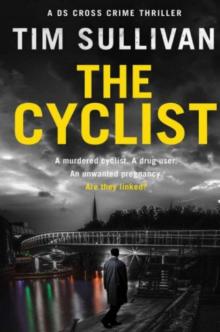 The Cyclist
The Cyclist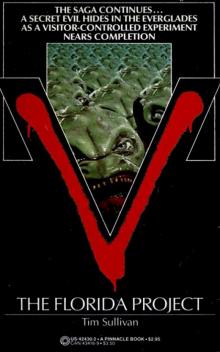 V: The Florida Project
V: The Florida Project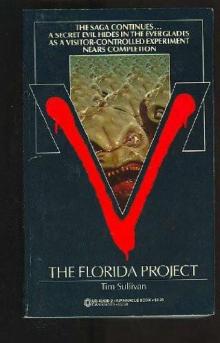 V05 - The Florida Project
V05 - The Florida Project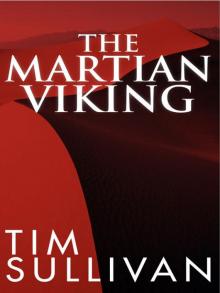 The Martian Viking
The Martian Viking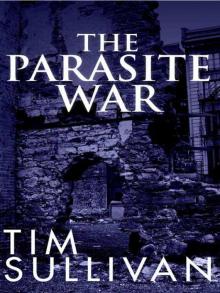 The Parasite War
The Parasite War